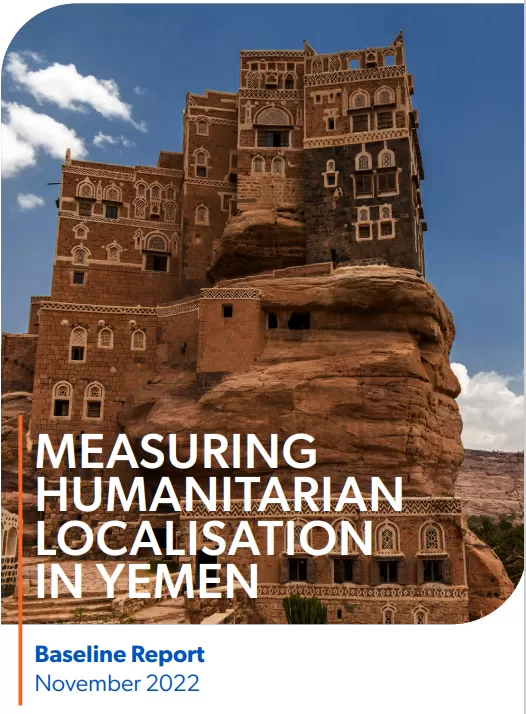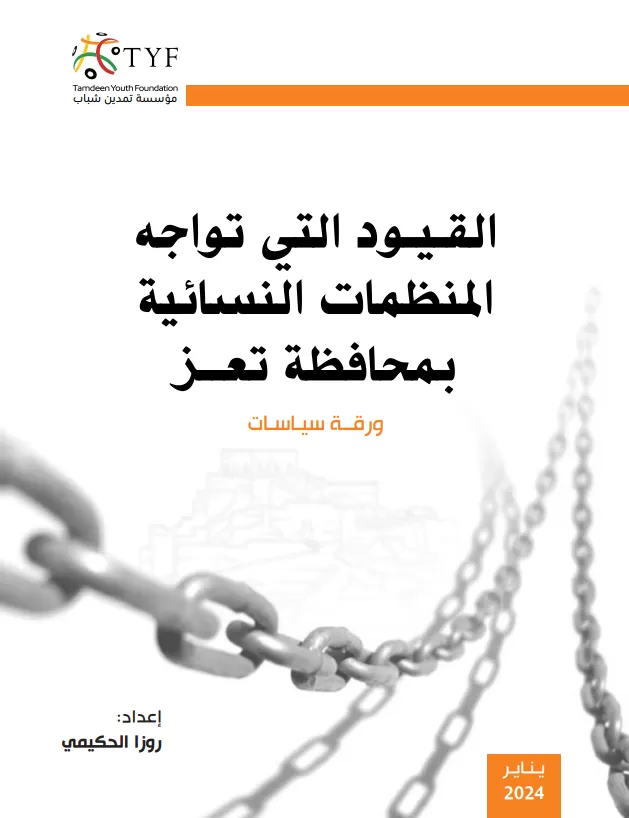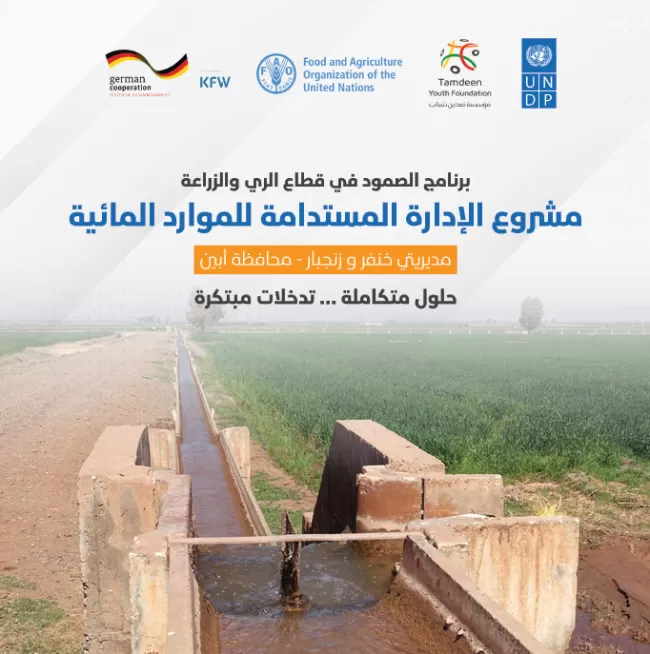Baseline Report for the Localization of Humanitarian Action in Yemen

EXECUTIVE SUMMARY
“The active participation of civil society organizations is essential for the peace process’s success. Civil society organizations can make valuable contributions to negotiations, including technical expertise, knowledge of hard-to-reach areas, and the local communities’ and marginalized groups’ perspectives whose voices are often not heard in negotiations.”
Today, Yemen is considered one of the world’s largest humanitarian crisis and relief operation due to the ongoing armed conflict that has been raging for over seven years. The toll of this armed conflict is tens of thousands of civilians dead and wounded and millions of internally displaced persons. It has also caused the collapse of the economy, destruction of infrastructure, institutions and public services, the spread of epidemics and disasters, and left millions of Yemenis to suffer from poverty, hunger, and diseases. The economy shrunk to 50 per cent, resulting in keeping 80 per cent of Yemenis living under the poverty line due to their loss of income, the currency collapse against foreign currencies, the lack of government revenues, trade restrictions on imports, and the increasing prices of basic commodities. Additionally, 40 per cent of Yemeni households have lost their primary source of income in a time where the country witnesses scarce job opportunities. While the need is overwhelming, a reduction in funding has been seen year after year, causing humanitarian programs to diminish and leaving people in need.
While needs have been increasing substantially in Yemen, local civil society is actively seeking to fill these needs. Yemen’s civil society has joined together to address the root cause of the problem, the war. “As Yemen’s local civil society organizations, we call on everyone to engage in a comprehensive and lasting peace process and to work hard to stop a war that has torn Yemen apart,” stated a civil society press release. Swedish diplomat and the current UN Special Envoy for Yemen Hans Grundberg said: “The active participation of civil society organizations is essential for the peace process’s success. Civil society organizations can make valuable contributions to negotiations, including technical expertise, knowledge of hard-to-reach areas, and the local communities’ and marginalized groups’ perspectives whose voices are often not heard in negotiations.” Over the years, the role of local civil society has been increasingly recognized as essential for an effective response. However, challenges to localisation and local leadership exist across Yemen, as do the makeup and the nature of national humanitarian actors. Levels of funding to national non-governmental organisations (NGO) impact the ability for meaningful coordination and advocacy.
This report considers progress on localisation in Yemen, measuring it across seven pillars: Partnerships, Funding, Capacity Strengthening, Coordination and Complementarity, Policy Influence, Leadership, and Participation.
The Measurement Localisation - Framework and Tools2 developed by Humanitarian Advisory Group (HAG) and Pacific Islands Association of NonGovernmental Organisations (PIANGO) was utilized and contextualised for the country and crisis in Yemen. Using a mixed-methodology approach including self-assessments, key informant interviews, and focus group discussions the report was able to capture both qualitative and quantitative information. Moreover, the report relies also on various documents and reports analysing the humanitarian situation and response in Yemen, including the Inter-Agency Humanitarian Evaluation of the Yemen Crisis, The Yemen Humanitarian Forum Annual Report, The World Bank Report, Yemen Civil Society Organisations in Transition, Ministry of Planning Report, and many other publications collected in the desk research phase.
Across the pillars, minimal evidence exists that there has been adequate progress except for in Participation, where moderate evidence of progress was found. Challenges uncovered include a lack of equitable partnerships in practice, while principles of equitable partnership were well known on paper.
Another finding shows that opportunities for involvement of local NGOs exist, but not at the level of decision-making. There is also evidence of insufficient know-how and inadequate investment in capacity-building of local NGOs.
Lack of access to direct funding was critical across all the pillars.
Generally, the findings of this baseline report suggest that the progress of localisation in the current humanitarian response in Yemen is uneven.
Although civil society is present, active, and strong, more work needs to be done to enhance the meaningful participation of local actors in the leadership and decision-making process while strongly engaging in collective advocacy and policy efforts. The research suggests that four steps should be taken to progress further the localisation agenda in Yemen:
-
Support a dedicated structure to facilitate and monitor the localisation process;
-
Promote localisation in existing response and coordination mechanisms;
-
Increase opportunities for local and national actors to respond more effectively 4. Ensure more adequate and relevant initiatives of capacity sharing.


